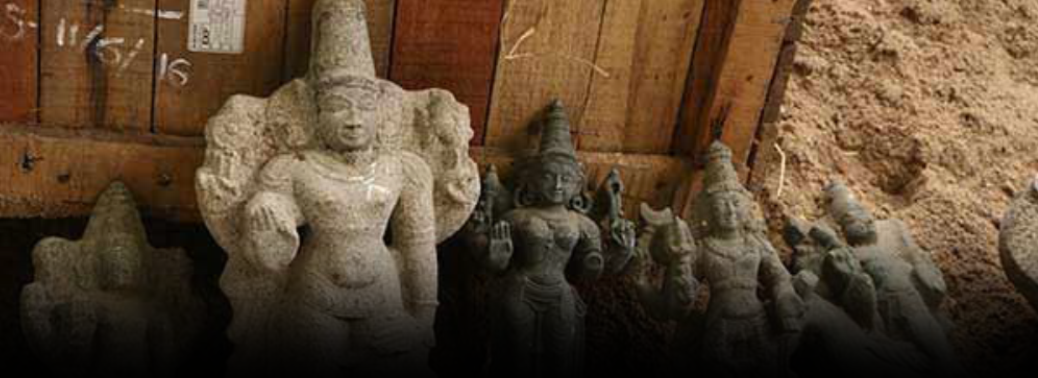ASI IDENTIFIES INDIAN ARTEFACTS SEIZED FROM SMUGGLER
09, May 2019

Prelims level : Art & Culture
Mains level : Indian Heritage and Culture, History and Geography of the World and Society
Why in News:
- From idols dating back to the Gupta period (5th-6th Century AD) to terracotta objects of the Harappan culture, a range of Indian antiquities and artefacts that were smuggled identified by the Archaeological Survey of India (ASI) during a team’s recent visit to the United States.
Details:
- “The antiquities comprise beautiful bronzes from the Suttamalli and Sripurantan temples of
- Tamil Nadu and also a very significant image of Mahakoka Devata.
- Of these, four antiquities were stolen from the protected monuments at Karitalai, district Katni in Madhya Pradesh.
- Apart from that, 56 terracotta objects that were returned by Toledo Museum in Ohio to the Indian consulate were declared to be antiquities by the team.
- Among them, few were identified as antiquities, like the stone image of the Buddha of Mathura School, a terracotta image of the Buddha belonging to the Gupta period and a set of 10 copper plates engraved with Quranic verses of the late Mughal Period,
Archaeological Survey of India (ASI)
- The ASI is the premier organization for the archaeological researches and protection of the cultural heritage of the country.
- The prime objection of ASI is to maintain the archaeological sites, ancient monuments and remains of national importance.
- Headquarters: New Delhi.
- Established: 1861 by Alexander Cunningham.
- It regulates all archaeological activities as per the provisions of the Ancient Monuments and Archaeological Sites and Remains Act, 1958.
- It functions under the aegis of the Union Ministry of Culture. It also regulates Antiquities and Art Treasure Act, 1972.







